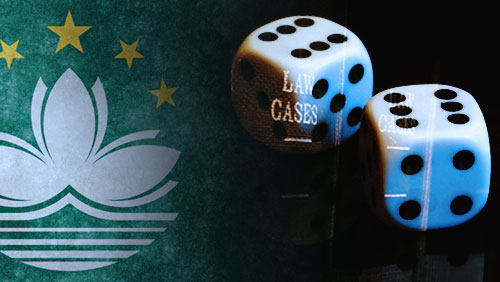A plan to amend Macau’s Casino Law gets a big push from at least 11 local associations representing the interests of casino employees.
 Macau Daily Times reported that the association threw its support on the revision of Law No. 10/2012 or “Regulating the Conditions of Entering, Working, and Gaming Casinos” after reaching a broad agreement on the proposed amendment with the government during their meeting last week.
Macau Daily Times reported that the association threw its support on the revision of Law No. 10/2012 or “Regulating the Conditions of Entering, Working, and Gaming Casinos” after reaching a broad agreement on the proposed amendment with the government during their meeting last week.
A new provision banning gaming workers from taking part in any gaming related activities inside casinos during non-work hours is set to be included under the proposed amendment of Law No. 10/2012.
Saying that it would help lessen the risk of those workers becoming problem gamblers and would – in the long run – help maintain a healthy development of the gaming industry, the representatives of the associations gave the proposed law revision a thumbs-up.
The Macau Gaming Industry Frontline Workers, which one of the 11 local associations present during the meeting with the Gaming Inspection and Coordination Bureau (DCIJ), presented the results of a survey at the meeting, showing that 77 percent of some 3,044 casino workers who were interviewed supported the revision.
Paulo Martins Chan, director of the DCIJ, assured the casino workers groups that the government always pays close attention to the possibility of negative influences affecting the community as a result of exposure to gaming.
He added that the Macau government will continuously enhance legislation in order to promote a healthy and sustainable development of the industry.
Currently, casino operators typically bar their own workers from gambling in their own workplace, however the proposed amendment could see the ban being applied universally across the city’s casinos.
The statement from GCS also noted that members of public are welcome to contribute their opinions regarding the potential revision by contacting DICJ.
Macau’s Social Welfare Bureau reported in June that at least 147 individuals sign on with the Central Registry System of Individuals with Gambling Disorder last year. Around 80% of these individuals reported owing gambling debts, with 60% owing debts of over MOP 100k (US $12,500) apiece.